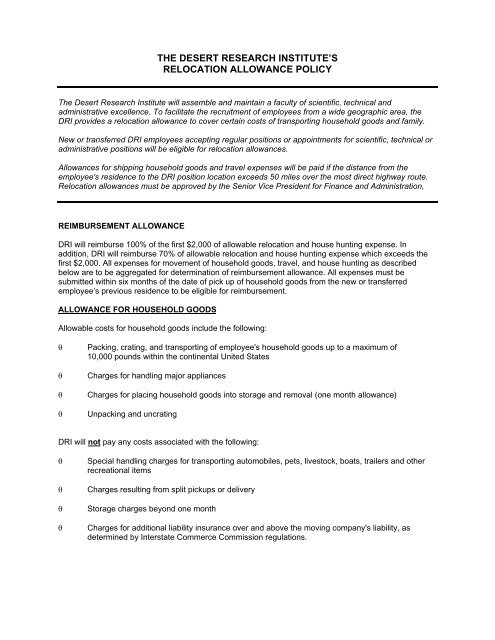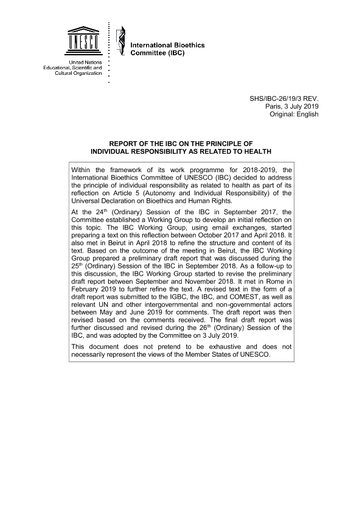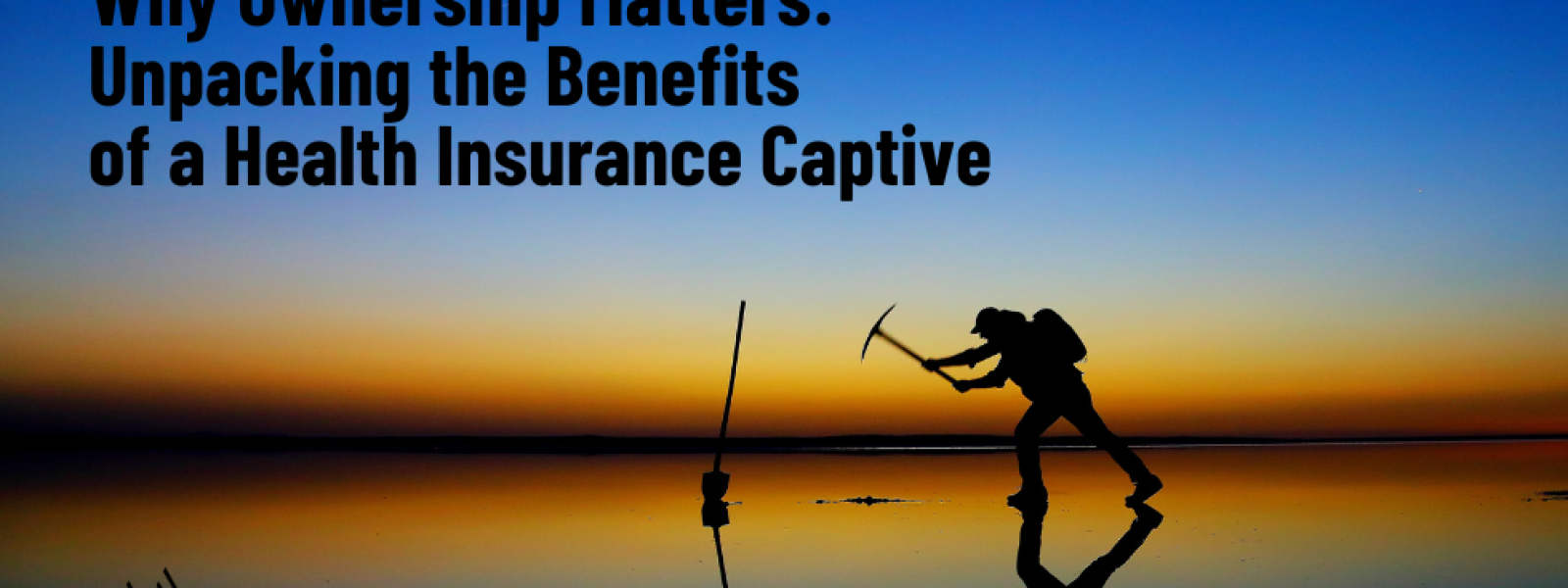When an insurance company accepts liability, it means they acknowledge responsibility for a claim. This can involve admitting fault or agreeing to provide coverage for damages or losses.
This acceptance of liability often leads to the insurance company taking over the financial responsibility for the claim. Liability acceptance by an insurance company is a crucial step in the claims process. It signifies the acknowledgment of responsibility for a claim and the commitment to provide coverage for damages or losses.
When an insurance company accepts liability, it means that they admit fault or agree to take financial responsibility for the incident in question. This acceptance is a pivotal moment for the claimant, as it indicates the insurance company’s willingness to handle the expenses related to the claim. We will explore what it means when an insurance company accepts liability and the implications it has on the claims process. Understanding this concept can empower individuals to navigate the claims process more effectively and ensure they receive the compensation they are entitled to.

Credit: www.yumpu.com
Understanding Liability Acceptance
Liability acceptance plays a crucial role in the insurance industry. When it comes to insurance claims, acceptance of liability by an insurance company is a significant milestone. It indicates that the insurance company acknowledges its legal and financial responsibility for an incident covered under the policy. In this article, we will explore the definition of liability in insurance, the role of liability acceptance, and the reasons why insurance companies accept liability.
Definition Of Liability In Insurance
Liability in insurance refers to the legal obligation of an insurance company to compensate for damages or injuries caused by the insured party. It typically arises when the insured party is found responsible for an accident, negligence, or wrongdoing that results in harm or loss to a third party. Liability can extend to various types of insurance policies, including auto insurance, homeowners insurance, and general liability insurance.
For example, in an auto insurance policy, liability coverage protects the insured party against claims for bodily injury or property damage caused by an accident for which they are at fault. The insurer becomes liable for the financial consequences of the insured’s actions within the policy limits.
The Role Of Liability Acceptance In Insurance
Liability acceptance is the insurer’s formal acknowledgment that it accepts responsibility for an incident covered under the policy. It signifies that the insurer agrees to compensate the injured party for their losses, subject to the policy terms and conditions. It is an essential step in the claims process and paves the way for further negotiations or settlements.
When an insurance company accepts liability, it demonstrates its commitment to fulfilling its contractual obligations and ensuring fair compensation for the affected party. It allows the injured party to proceed with their claim and seek appropriate remedies without undue delay. Moreover, liability acceptance helps establish transparency, accountability, and trust between the insurer and the insured.
However, it is important to note that liability acceptance doesn’t necessarily imply full fault or responsibility. Insurance companies may accept liability partially or proportionally, depending on the circumstances and evidence surrounding the incident. They may also reserve the right to investigate further or contest liability if new information emerges.
Why Insurance Companies Accept Liability
Insurance companies accept liability for various reasons, all aimed at fulfilling their contractual obligations and maintaining customer satisfaction. Here are some common reasons:
- Prompt Claims Settlement: Accepting liability promptly allows the insurance company to expedite the claims settlement process. It demonstrates responsiveness and helps ensure timely compensation for the injured party, thereby avoiding unnecessary delays or legal disputes.
- Legal Compliance: By accepting liability, insurance companies comply with their legal obligations under the policy contract. It reaffirms their commitment to provide coverage and meet the financial needs of the policyholder as outlined in the insurance agreement.
- Customer Retention: Accepting liability in a reasonable and fair manner fosters trust and strengthens the insurer-insured relationship. It enhances customer satisfaction and increases the likelihood of retaining policyholders, ultimately benefiting the insurance company’s reputation and long-term business success.
In conclusion, liability acceptance is a crucial step in the insurance claims process. It signifies the insurance company’s acknowledgment of its legal and financial responsibility for the incident covered under the policy. Understanding the definition of liability, the role of liability acceptance, and why insurance companies accept liability is essential for policyholders and claimants seeking fair compensation and resolution.
The Process Of Liability Acceptance
When you’re involved in an accident or incident that results in damage to your property or injury to yourself, one of the first steps you’ll have to go through is getting your insurance company involved. After filing a claim and providing the necessary documentation, you’ll be eagerly waiting to hear whether the insurance company accepts liability for the incident. But what does it really mean when an insurance company accepts liability? Let’s take a closer look at the process of liability acceptance.
Investigation And Determination Of Fault
Once you’ve reported the incident and the insurance claim has been initiated, the insurance company will start its investigation to determine fault. This step is crucial as it involves gathering evidence, reviewing witness statements, examining the accident scene, and sometimes even consulting with experts to assess fault accurately. The insurance adjuster assigned to your case will carefully analyze all the available information to determine who should be held responsible for the damages or injuries.
During this investigation phase, the insurance company will typically examine:
| Evidence | Witness Statements | Accident Scene | Experts Consultation |
|---|---|---|---|
| Police reports | Statements from involved parties | Photographs or videos | Accident reconstruction specialists |
| Medical records | Police officers’ observations | Skid marks or other physical evidence | Medical experts |
Evaluation Of Damages
Once fault has been determined, the insurance company will turn its attention to assessing the damages caused by the incident. This involves examining the extent of property damage or injuries sustained and estimating the financial losses incurred as a result. The insurance adjuster will consider factors such as medical bills, repair costs, lost wages, and other relevant expenses to determine the value of the claim.
During the evaluation of damages, the insurance company may take into account:
- Medical records and bills
- Estimates from repair shops
- Receipts for alternative transportation
- Documentation of lost income
- Any other documented expenses related to the incident
Negotiations And Settlement
Once liability has been accepted and the damages have been evaluated, the insurance company will enter into negotiations with you or your representative to reach a settlement. This is the process where the insurance company and the claimant try to agree on a fair compensation amount that adequately covers all the damages and losses suffered.
During the negotiations and settlement process, the following factors may come into play:
- Legal precedents and case law
- The insurance policy’s coverage limits
- The severity of the injuries or damages
- Past settlement amounts for similar cases
- Any applicable state laws and regulations
Ultimately, the goal is for both parties to reach a mutually acceptable agreement. Once a settlement is agreed upon, the insurance company will compensate you for the damages and the claim will be officially resolved.
Implications Of Liability Acceptance
When an insurance company accepts liability, it signifies that they acknowledge responsibility for covering the costs of a claim made by the insured party. This decision has several implications that impact both the insurance company and the policyholder. Understanding these implications can help both parties navigate the claims process and ensure a fair resolution.
Legal Responsibilities Of The Insurance Company
Liability acceptance by an insurance company entails certain legal obligations that they must fulfill. Once liability is accepted, the insurer is legally bound to compensate the insured for any losses covered under the policy. This includes medical expenses, property damage, or any other eligible costs arising from the claim. The insurance company is also responsible for handling the processing and settlement of the claim in a timely manner, adhering to relevant legal and regulatory requirements.
Rights And Recourse Of The Insured
Liability acceptance also grants certain rights and recourse to the insured party. If an insurance company accepts liability, it implies that the policyholder has a legitimate claim that qualifies for coverage. As a result, the insured can expect the insurer to provide the necessary financial support and assistance during the claim process. Additionally, policyholders have the right to seek legal counsel or consult with independent experts to ensure fair assessment and settlement of their claim. If the insurer fails to fulfill their obligations, the insured can take legal action to protect their rights.
Impact On Premiums And Policyholders
The acceptance of liability can have a significant impact on premiums and policyholders. When an insurance company accepts liability for a claim, it may result in an increase in the policyholder’s premiums upon renewal, especially if the claim is significant in terms of the amount paid out. This is because the insurer considers the increased risk associated with the policyholder and adjusts the premium accordingly. Policyholders should also be aware that a history of claims may affect their ability to switch insurers or obtain coverage in the future, as other companies may view them as higher risk. It is important for policyholders to weigh the long-term financial implications of making a claim against their short-term needs.
Challenges And Limitations Of Liability Acceptance
When an insurance company accepts liability, it means they acknowledge their obligation to cover the costs associated with a claim made by their policyholder. However, there are several challenges and limitations that can arise with liability acceptance. Understanding these challenges is crucial for policyholders and claimants to navigate the process and ensure they receive the coverage they deserve. In this section, we will explore three key challenges related to liability acceptance: disputes over liability, complex or ambiguous cases, and exclusions and policy limitations.
Disputes Over Liability
Disputes over liability are common when an insurance company accepts liability. This occurs when there is a disagreement between the policyholder or claimant and the insurance company regarding who is responsible for the damages or losses. These disputes can arise due to conflicting witness accounts, differing interpretations of the policy language, or the insurance company’s attempt to minimize their financial liability.
In such cases, it is essential to present a strong case supported by evidence, such as photographs, video footage, or expert opinions, to prove liability. An experienced insurance claims attorney can guide you through the process, negotiate on your behalf, and ensure your rights are protected.
Complex Or Ambiguous Cases
Some cases present complexities or ambiguities that can pose challenges when an insurance company accepts liability. These complexities may include multiple parties involved, shared responsibility, or overlapping insurance coverage. In ambiguous cases, the policy language may be unclear or open to interpretation, leading to confusion about liability assignment.
In such situations, it is crucial to closely review the policy terms and conditions, seek clarification from the insurance company, and consult legal expertise if needed. An attorney specializing in insurance law can help navigate the complexities of the case, interpret the policy language, and ensure fair treatment in liability acceptance.
Exclusions And Policy Limitations
Exclusions and policy limitations can also pose challenges when an insurance company accepts liability. Insurance policies often contain exclusions that specify certain events or circumstances they do not cover. Additionally, policies may have limits on the amount of coverage available, which can affect the extent to which the insurance company accepts liability.
It is important for policyholders and claimants to carefully review their insurance policies to understand these exclusions and limitations. Being aware of these provisions can help manage expectations and avoid potential disputes or disappointments regarding liability acceptance.
In conclusion, while liability acceptance by an insurance company is a positive step towards resolving a claim, there are challenges and limitations that can arise. Disputes over liability, complex or ambiguous cases, and exclusions and policy limitations are common hurdles that policyholders and claimants must navigate. By understanding these challenges and seeking the appropriate guidance, individuals can ensure they receive the full coverage they are entitled to.
Tips For Dealing With A Liability Acceptance
Dealing with a liability acceptance from an insurance company can be challenging, but with these helpful tips, you’ll navigate the process smoothly. Understand what it means when an insurance company accepts liability and learn how to handle the situation effectively.
Seek Legal Counsel
If an insurance company accepts liability for a claim, it means they acknowledge responsibility for the accident or incident that caused the damages. This is a significant step in the claims process, as it indicates their willingness to provide compensation for the losses. However, dealing with a liability acceptance can still be a complex and challenging process. In such situations, seeking legal counsel is crucial to ensure you understand your rights and receive fair compensation.
Legal professionals specializing in personal injury or insurance claims have extensive knowledge and experience in dealing with insurance companies. They can guide you through the legal procedures, help you determine the worth of your claim, and negotiate with the insurance company on your behalf. By having legal representation, you can ensure your rights are protected and increase the likelihood of obtaining a favorable outcome.
Document And Preserve Evidence
In order to strengthen your case, it is essential to document and preserve all relevant evidence regarding the accident or incident. This includes photographs, videos, witness statements, police reports, medical records, and any other evidence demonstrating the nature and extent of your damages.
Document all communication with the insurance company, including emails, letters, and phone calls, as they can be useful later in the claims process. Keep records of any expenses related to your injury or damages, such as medical bills, property repair costs, and lost wages.
In addition to preserving physical evidence, it is also important to keep track of your medical treatment. Take notes of your symptoms, medications, and doctor visits. This detailed documentation can help support your claim and demonstrate the severity of your injuries.
Stay Informed And Communicate
Throughout the claims process, it is vital to stay informed and communicate effectively with the insurance company and your legal counsel. Stay updated on the progress of your claim, the documentation required, and the expected timeline. Understanding the process will help you make well-informed decisions and avoid delays.
When communicating with the insurance company, be cautious about what you say and how you say it. Stick to the facts and avoid admitting fault or providing unnecessary details. Refer any requests for information or statements to your legal counsel, who can protect your interests and ensure you do not say anything that may harm your claim.
Keep a record of all communications with the insurance company, noting the date and time of conversations, the names of the representatives you speak with, and a summary of the discussion. This record can serve as evidence of the insurance company’s actions and commitments.

Credit: www.bcg.com
Liability Acceptance In Different Types Of Insurance
When it comes to insurance, accepting liability is a significant milestone for both the insured individual or company and the insurance company. It means that the insurance company acknowledges that they are responsible for covering the losses or damages outlined in the terms of the policy. However, liability acceptance can vary depending on the type of insurance. In this article, we will explore the concept of liability acceptance in different types of insurance: Auto Insurance, Homeowners Insurance, and Professional Liability Insurance.
Auto Insurance
Auto insurance is a type of insurance that provides coverage for vehicles and drivers in the event of an accident or damage. When an insurance company accepts liability in an auto insurance claim, it means that they acknowledge that their insured driver is at fault for the accident and, therefore, responsible for covering the damages.
Liability acceptance in auto insurance can have different scenarios:
- Full Liability: The insurance company accepts full liability for the accident, meaning they will cover all costs associated with the damages, including medical expenses, vehicle repairs, and property damages.
- Partial Liability: In some cases, the insurance company may accept partial liability if both drivers share fault in the accident. In this situation, the insurer will cover a portion of the damages based on the percentage of fault assigned to their insured driver.
- No Liability: If an insurance company determines that their insured driver is not at fault for the accident, they may deny liability altogether, and the claimant would need to pursue compensation from the at-fault party’s insurance company or through legal means.
Homeowners Insurance
Homeowners insurance provides coverage for homeowners in the event of damage, theft, or liability claims that occur within their property. When an insurance company accepts liability in a homeowners insurance claim, it means that they acknowledge that their insured homeowner is responsible for the damages or injury that occurred on their property.
Liability acceptance in homeowners insurance can involve:
- Property Damage Liability: This occurs when the homeowner is responsible for damages caused to someone else’s property, such as a neighbor’s fence or a visitor’s vehicle.
- Personal Injury Liability: If a person sustains injuries on the homeowner’s property and holds the homeowner accountable, the insurance company may accept liability to cover medical expenses, legal fees, and other related costs.
Professional Liability Insurance
Professional Liability Insurance, also known as Errors & Omissions (E&O) insurance, is crucial for professionals who provide advice or services. When an insurance company accepts liability in a professional liability insurance claim, it means that they recognize that the insured professional made errors, omissions, or failed to meet the expected standard of care, resulting in financial or reputational damages for their client.
Liability acceptance in professional liability insurance can involve:
- Negligence or Professional Misconduct: If it is proven that the insured professional acted negligently or engaged in professional misconduct, the insurance company may accept liability and cover the damages suffered by the client.
- Failure to Perform: If the insured professional fails to provide services or perform their duties as outlined in the agreement or contract, resulting in financial losses for the client, the insurance company may accept liability.
In conclusion, liability acceptance in different types of insurance signifies the insurance company’s acknowledgment of their responsibility to cover damages or losses. Whether it involves auto insurance, homeowners insurance, or professional liability insurance, accepting liability is a crucial step in resolving claims and providing financial protection for the insured parties.

Credit: unesdoc.unesco.org
Frequently Asked Questions On What Does It Mean When An Insurance Company Accepts Liability
What Does It Mean When Insurance Claims Liability?
Insurance claims liability refers to the responsibility an insurance company has in paying for damages or injuries caused by its policyholder. It means the insurer is legally obligated to compensate the injured party for their losses.
What Does It Mean When An Insurance Company Does Not Accept Liability?
An insurance company not accepting liability means they are not responsible for paying for damages or losses. They do not accept fault or responsibility for an incident.
What Does It Mean When An Insurance Company Accepts A Claim?
When an insurance company accepts a claim, it means they agree to provide coverage according to the terms of the policy. The insurer acknowledges liability for the loss, and the policyholder can expect to receive compensation or have the necessary repairs or replacements covered.
What Does It Mean To Not Admit Liability?
Not admitting liability means refusing to accept responsibility for a particular matter or claim. It does not acknowledge fault or guilt.
Conclusion
Understanding what it means when an insurance company accepts liability is crucial in the claims process. It signifies the acknowledgement of responsibility for the incident and the commitment to provide compensation. By accepting liability, the insurance company takes on the financial burden, enabling the injured party to be adequately compensated for their losses.
This decision facilitates a fair settlement and brings closure to the claims process, ensuring that justice is served.




